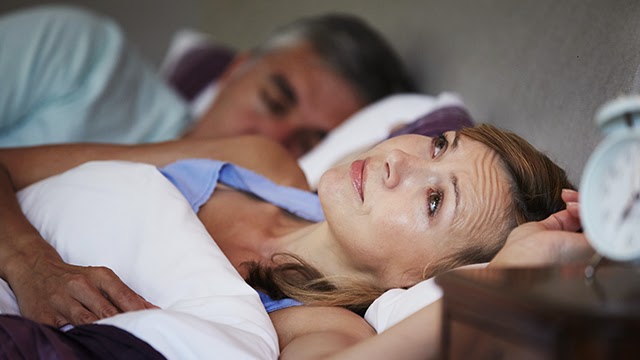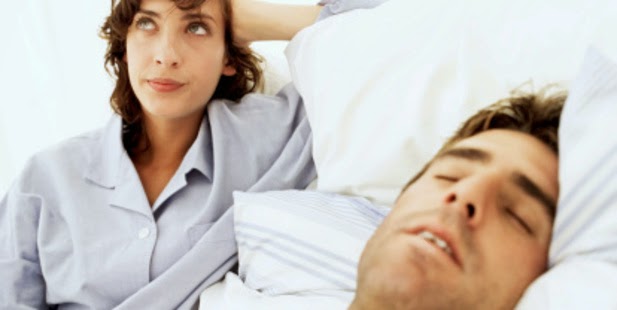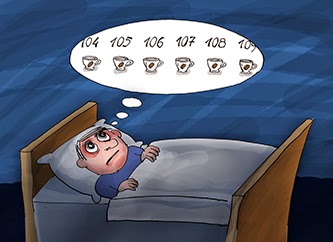Sleep Apnea Increases Risk of Atrial Fibrillation After Bypass Surgery
MedicalResearch.com Interview with:Adrian Baranchuk MD FACC FRCPCAssociate Professor of MedicineDirector, EP Training Program Queen’s UniversityKingston, Ontario, CanadaMedical Research: What are the main findings of the study? Dr. Baranchuk: In this study, we investigated whether obstructive sleep apnea increases the risk of atrial fibrillation after coronary artery bypass surgery. We found the risk to increase by approximately two-fold for patients with obstructive sleep apnea, suggesting that this disease is a strong predictor of atrial fibrillation after coronary artery bypass surgery. We also found that the risk increases in patients with more severe obstructive sleep apnea. This is an important association to …
Your Brain May Get Smaller if You Don’t Sleep Enough
Notes from Dr. Norman Blumenstock EmpowerHER reports that a portion of the brain may shrink when individuals do not get an adequate amount of sleep. The cerebral cortex is the site of complex functions of the brain, and controls how we think and interact with the world. According to the study, lack of sleep may shrink part of the frontal cortex, which deals with problem-solving, self-control, planning and logic. Lack of sleep also accelerates the rate of brain loss in regions that process sound, language and spatial orientation. Monkey Business Images/PhotoSpin Getting a good night’s sleep has all sorts of health benefits, …
The Worst Sleep Disorder of Them All
Notes from Dr. Norman Blumenstock Stanford Doctor Names The #1 Worst Sleep Disorder Posted: 05/02/2014 5:14 pm EDT Updated: 07/02/2014 5:59 am EDT As a kid I used to love watching the G.I. Joe cartoon series, and still can remember one of their catchphrases: “Knowing is half the battle!” Now, over 25 years later, it occurs to me that this quote is relevant to the field of sleep as well. Researchers estimate that more than 80 percent of people with clinical sleep issues remain undiagnosed, and so it seems that awareness around sleep disorders could use a little boost. With …
Snoring likely to be in your genes
Notes from Dr. Norman Blumenstock Children whose parents suffer from obstructive sleep apnea have a much higher chance of having the condition, reports The New Zealand Herald. There’s bad news for the children whose parents keep them awake at night snoring – they are more likely to follow in their parents’ footsteps and be noisy sleepers too. 5:00 AM Thursday Oct 9, 2014Study shows 5 to 10 per cent of adults have severe sleep apnoea and the majority of them are overweight. Children whose parents suffer from obstructive sleep apnoea – of which snoring is a major symptom – have a …
How to Use Data to Get Better Sleep
Notes from Dr. Norman Blumenstock All sorts of fitness trackers and bed sensors say they quantify sleep. But once you collect data, what do you do next? PC Magazine reports. Published on September 29, 2014 All sorts of fitness trackers and bed sensors say they quantify sleep. But once you collect data, what do you do next? PC Magazine reports. Collect Additional Data to Correlate The problem is that knowing what times of night you tossed and turned, or how much time in bed you spent asleep or awake, isn’t enough information to guide you to make changes that will help you …
More Sleep, Less Medicine: Sleep Disorders Center Breaks Insomnia’s Grip
Joint program of Rutgers and RWJ University Hospital offers range of sleep studies and treatment options for patients of all agesBy Robin Warshaw Friday, September 12, 2014 Patients suffering from insomnia find relief through a joint program through Rutgers Robert Wood Johnson Medical School and Robert Wood Johnson University Hospital. For more than 30 years, Donna* believed her chronic insomnia was something she and medical science couldn’t change. Most nights, she had difficulty falling asleep and staying asleep. Her doctors prescribed various medicines that did little to help. Donna pushed her way through an ever-present blanket of fatigue to succeed in …
Can Sleep Apnea Predict a Heart Attack?
By Eric Cohen, MD Published Sep 8, 2014 Many of the patients I see who complain about sleep issues have some level of obstructive sleep apnea (OSA). In fact, as many one in five adults have at least a mild form of sleep apnea. People with obstructive sleep apnea are also more likely to have hypertension, high blood pressure, and cardiovascular disease. Now, as a result of the latest research, when we test for sleep apnea we also examine and focus on the state of a person’s heart. The link between sleep apnea and cardiovascular disease has been studied for several years. In 2013 it …
Sleep Apps in the Spotlight
Another sign that sleep health is going more mainstream every day is the proliferation of smart phone applications (apps) being designed for the consumer market. Hayley Tsukayama, consumer technology beat reporter for The Washington Post, writes that there are “dozens” of sleep apps in Apple and Google’s app stores. Some offer meditation tips or even play soothing white noise. “Perhaps most intriguing of all, there’s also a whole class of apps devoted to sleep analysis,” she writes, “and apps that you leave up on your phone’s screen while you snooze that monitor your sleep based on your movements and the sounds …
Notes from Dr. Norman Blumenstock SomnoMed provides us four different oral appliances to choose from that can be used for patients with obstructive sleep apnea. Medicare and medical insurance companies generally provide benefits for oral appliance therapy. September 24, 2014 02:40 PM Eastern Daylight Time FRISCO, Texas–(BUSINESS WIRE)–SomnoMed (ASX:SOM) announced this week that it has received Medicare approval for its new SomnoDent® Herbst Advance Classic and Flex oral devices. The devices, which effectively treat obstructive sleep apnea, have received full CMS/PDAC approval and were allocated the HCPCS Code of E0486 for DME billing, allowing for Medicare reimbursement in the United …
Sleep Apnea Predisposes To Impaired Brain Blood Flow With Physical Activity
Notes from Dr. Norman BlumenstockMedicalresearch.com interviews Paul Macey, PhD, lead researcher on a study that provides evidence of sleep apnea hurting the brain Medical Research: Were any of the findings unexpected? Dr. Macey: We did not expect that breathing very hard into a small tube would lead to similar changes in brain blood flow in the sleep apnea and healthy people; we had expected the sleep apnea patients to show problems, as they did during the gripping and cold foot activities. We now believe the hand and foot activities need to use more higher brain areas, but that these areas …








